plant based meat
description: a food product made from plant ingredients designed to replicate the taste and texture of animal meat
19 results
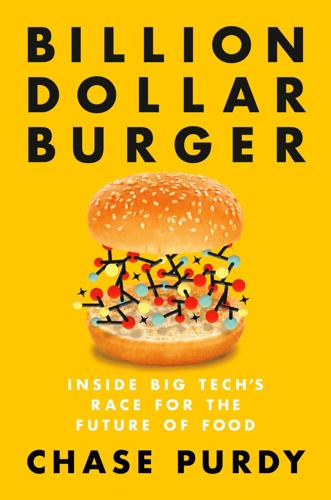
Billion Dollar Burger: Inside Big Tech's Race for the Future of Food
by
Chase Purdy
Published 15 Jun 2020
Grief threw his situation into sharp relief. Could he do more? Could he be more? And again Tetrick turned to Balk, who sat quietly in his living room, thinking over the events of the afternoon. The two men began to brainstorm. They burned through a few ideas, one of which included developing their own plant-based meat alternative, something akin to the Beyond Meat burger or Impossible Foods products. But, in the end, they decided ardent meat-eating people would ultimately want more than just plant-based imitators. And that’s when Balk posed a question: Why not explore the possibility of getting into cell-cultured meat?
…
Truly, it’s the most convincing piece of cell-cultured meat I’ve seen or interacted with. “Everything you would expect in meat is in there, and it’s all cell-cultured,” the scientist tells me. “That is so cool,” I say, still bewildered—even humbled—by the experience. “You would never get this experience with non-animal-based products,” Valeti says, meaning plant-based meat substitutes like Impossible Foods and Beyond Meat. Valeti’s confidence in his product is noticeable. “One of the things we do with all the tastings is we try not to put anything on the meat,” Valeti explains. “I know for sure if you put this in the hands of one of our chefs and said, ‘Okay make this into a very gourmet meal,’ they could do it.
…
In the late 1950s, per capita consumption of margarine officially passed that of butter, and its popularity continued to grow until the late 1970s. It wasn’t until the mid-2000s that per capita margarine consumption would again dip below that of butter. There’s one clear reason established industry groups have failed to beat back new technology each and every time—with margarine, plant-based milks, and increasingly plant-based meats. Consumers are interested in trying new things. Sometimes it’s because they have a financial reason (margarine was cheaper during periods of economic depression), sometimes it’s for health reasons (plant-based milks have different nutritional profiles from conventional milk), and sometimes it might be for ethical reasons (cell-cultured meat is better for the environment and kinder to animals).
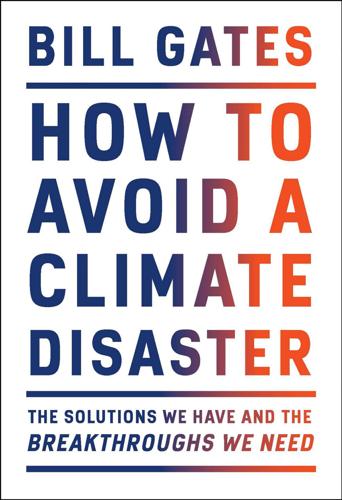
How to Avoid a Climate Disaster: The Solutions We Have and the Breakthroughs We Need
by
Bill Gates
Published 16 Feb 2021
According to the listing on the UNESCO website, “The gastronomic meal emphasizes togetherness, the pleasure of taste, and the balance between human beings and the products of nature.” But we can cut down on meat eating while still enjoying the taste of meat. One option is plant-based meat: plant products that have been processed in various ways to mimic the taste of meat. I’ve been an investor in two companies that have plant-based meat products on the market right now—Beyond Meat and Impossible Foods—so I’m biased, but I have to say that artificial meat is pretty good. When prepared just right, it’s a convincing substitute for ground beef. And all of the alternatives out there are better for the environment, because they use much less land and water and are responsible for fewer emissions.
…
It’s amazing to see how widely available their products are, at least around the Seattle area and the cities I visit. Beyond Meat had a very successful initial public offering in 2019. It may take another decade, but I do think that as the products get better and cheaper, people who are worried about climate change and the environment will favor them. Another approach is akin to plant-based meat, but instead of growing plants and then processing them so they taste like beef, you grow the meat itself in a lab. It has somewhat unappealing names like “cell-based meat,” “cultivated meat,” and “clean meat,” and there are some two dozen start-up companies working on getting it to market, though their products probably won’t be on supermarket shelves until the mid-2020s.
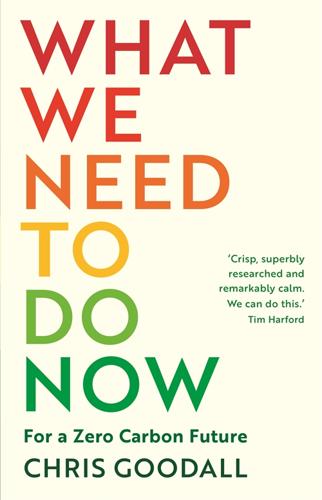
What We Need to Do Now: A Green Deal to Ensure a Habitable Earth
by
Chris Goodall
Published 30 Jan 2020
Simply moving to organic cultivation will not be enough if fertilisers are imported onto farms in the form of animal manure as the cultivation of those animals resulted in substantial greenhouse gas emissions. Beyond the organic alternative, we need to look at indoor agriculture, radical ‘agroecology’ and adopting plant-based meat substitutes. A climate-friendly diet, generally speaking, means eating small quantities of meat and fish combined with large amounts of unprocessed grains, beans and peas, as well as unsaturated oils, such as olive oil, and good amounts of nuts and fruit. Changes in diet and land use are necessary around the world, but getting to net zero emissions will probably be even more challenging than for the energy system.
…
Indoor farms are not large employers, particularly if they use advanced robotic techniques, but they will add year-round jobs across the UK, producing foods that are generally grown for us today in the rest of Europe. And these jobs can be distributed across all regions of the UK. They can be part of the Green New Deal that we need to achieve. PLANT-BASED ‘MEAT’ A potentially more significant development is the move to create food that looks, feels and tastes like meat but does not come from animals. Most of these new foodstuffs are manufactured from plant matter. The best known is the remarkably meat-like burger from Impossible Foods Inc. Impossible makes its product so that it looks and tastes exactly like conventional fast-food restaurant meat.
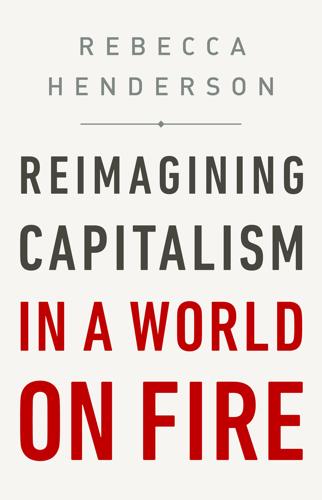
Reimagining Capitalism in a World on Fire
by
Rebecca Henderson
Published 27 Apr 2020
Deena Shanker, “Plant Based Foods Are Finding an Omnivorous Customer Base,” Bloomberg.com, July 30, 2018, www.bloomberg.com/news/articles/2018-07-30/plant-based-foods-are-finding-an-omnivorous-customer-base; Jesse Nichols and Eve Andrews, “How the Word ‘Meat’ Could Shape the Future of Protein,” Grist, Jan. 18, 2019, https://grist.org/article/how-the-word-meat-could-shape-the-future-of-protein/; Janet Forgrieve, “Plant-Based Food Sales Continue to Grow by Double Digits, Fueled by Shift in Grocery Store Placement,” Forbes, July 16, 2019, www.forbes.com/sites/janetforgrieve/2019/07/16/plant-based-food-sales-pick-up-the-pace-as-product-placement-shifts/#484fe50d4f75. 15. David Yaffe-Bellany, “The New Makers of Plant-Based Meat? Big Meat Companies,” New York Times, Oct. 14, 2019, www.nytimes.com/2019/10/14/business/the-new-makers-of-plant-based-meat-big-meat-companies.html. 16. Hannah Ritchie and Max Roserm “Crop Yields,” Our World in Data, Oct. 17, 2013, https://ourworldindata.org/yields-and-land-use-in-agriculture. 17. International Panel of Experts on Sustainable Food Systems (IPES-Food), “Breaking Away from Industrial Food and Farming Systems: Seven Case Studies of Agroecological Transition” (Oct. 2018); “Unlocking the Inclusive Growth Story of the 21st Century: Accelerating Climate Action in Urgent Times” (Washington, DC: New Climate Economy, 2018), https://newclimateeconomy.report/2018/wp-content/uploads/sites/6/2018/09/NCE_2018_FULL-REPORT.pdf.; Technoserve, Eyes in the Sky for African Agriculture, Water Resources, and Urban Planning, Apr. 2018, www.technoserve.org/files/downloads/case-study_eyes-in-the-sky-for-african-agriculture-water-resources-and-urban-planning.pdf. 18.
…
Ian Johnston, “India Just Cancelled 14 Huge Coal-Fired Power Stations as Solar Energy Prices Hit Record Low,” Independent, May 24, 2017, www.independent.co.uk/environment/india-solar-power-electricity-cancels-coal-fired-power-stations-record-low-a7751916.html. 4. Mark Kane, “Global Sales December & 2018: 2 Million Plug-in Electric Cars Sold,” InsideEVs, Jan. 31, 2019, https://insideevs.com/news/342547/global-sales-december-2018-2-million-plug-in-electric-cars-sold/. 5. Kate Taylor, “3 Factors Are Driving the Plant-Based ‘Meat’ Revolution as Analysts Predict Companies Like Beyond Meat and Impossible Foods Could Explode into a $140 Billion Industry,” Business Insider, May 24, 2019, www.businessinsider.com/meat-substitutes-impossible-foods-beyond-meat-sales-skyrocket-2019-5. In May 2019, Beyond Meat, which makes a meatless, plant-based burger with something very close to the taste and texture of real beef, had one of the most successful IPOs of the last ten years.
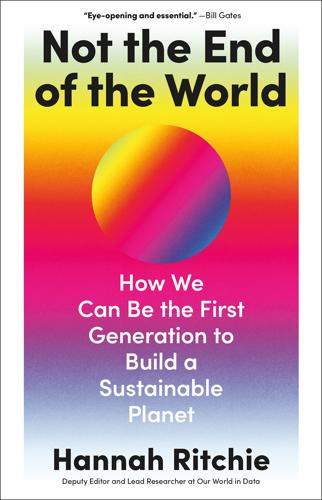
Not the End of the World
by
Hannah Ritchie
Published 9 Jan 2024
The day I knew the world was on to something – that we were really making progress – is when, some years later, he ate a plant-based meal and didn’t notice. His wife sneaked one of the ‘plant-based meats’ into a chilli con ‘carne’ and he didn’t blink an eye. In fact, he couldn’t believe it wasn’t meat. If anything, he said it was the best chilli he’d ever had. If my brother can be won over, almost anyone can. Meat-substitute products are one of the fastest-growing food sectors. Interestingly, it’s mostly meat eaters that eat them. Ninety-eight per cent of US consumers who bought plant-based meats were also buying meat products.26 That’s a great sign: we want plant-based meats to be something everyone is open to trying. They should never be a niche product for the vegans and vegetarians of the world.
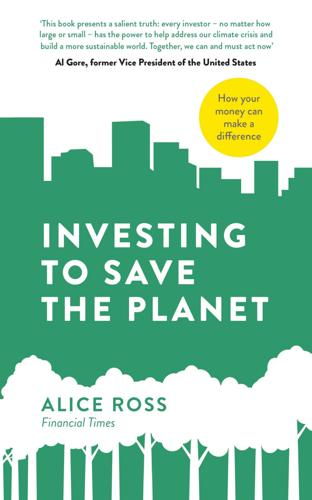
Investing to Save the Planet: How Your Money Can Make a Difference
by
Alice Ross
Published 19 Nov 2020
There were also signs that the coronavirus pandemic would prove a boon for plant-based alternatives. With meatpacking factories shut down across the US and labour shortages affecting production, plant-based factories, where production is more automated, saw less disruption in their supply chains. US sales of plant-based meat substitutes jumped by 265 per cent over an eight-week period, according to consumer data group Nielsen, compared with rises of just 39 per cent for fresh meat. This change in consumer behaviour means that plant-based foods represent an opportunity, and mainstream food companies have been getting in on the act.
…
Agribusiness Cargill, one of the world’s largest privately held companies, has also muscled in on the action, launching plant-based hamburgers and ‘fake meat’ products in April, while Tyson, one of the biggest meat producers, made a surprise entry into the market in 2019 as it announced a new plant-based brand, Raised and Rooted. Josh Balk notes how disruptive the plant-based industry is proving to be for traditional food companies. ‘The meat industry certainly knows plant based has arrived. [If you had told me that] the largest advertiser of plant-based meat is Burger King … a year ago I’d have said you were crazy. When you see meat companies, fast food companies, family dining chains [offering plant-based food], you know the time has come that this is mainstream.’ Just as some oil and gas companies are pivoting to renewable energy, like Denmark’s Orsted, some meat companies are turning to plant-based food.
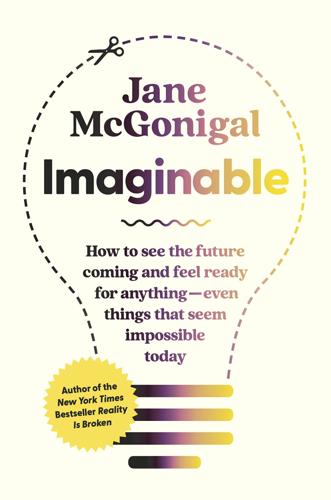
Imaginable: How to See the Future Coming and Feel Ready for Anything―Even Things That Seem Impossible Today
by
Jane McGonigal
Published 22 Mar 2022
Chapter Seven 1 Joe Myers, “19 of the World’s 20 Youngest Countries Are in Africa,” World Economic Forum, August 30, 2019, https://www.weforum.org/agenda/2019/08/youngest-populations-africa/. 2 Jay L. Zagorsky, “Why Are Fewer People Getting Married?” Conversation, June 1, 2016, https://theconversation.com/why-are-fewer-people-getting-married-60301. 3 Dane Rivera, “All the Fast Food Chains and Grocers Serving Plant-Based Meat in 2021,” Uproxx, February 14, 2021, https://uproxx.com/life/fast-food-chains-serving-plant-based-meat-2021/. 4 “Pandemials: Youth in an Age of Lost Opportunity,” World Economic Forum, accessed August 27, 2021, https://reports.weforum.org/global-risks-report-2021/pandemials-youth-in-an-age-of-lost-opportunity/; The Global Risks Report 2021, 16th ed.
…
These are brainstorming questions—the more answers, the better. If you’re feeling game, go ahead and think up a few ideas on your own before reading my suggestions. In a world living through an alpha-gal crisis . . . There would probably be a huge increase in demand for tick repellant; EpiPens to stop anaphylactic reactions; plant-based meats, poultry, and seafood; vegan toilet paper; and vegan versions of most household products. There would be increased demand for tick-safe indoor pets like fish and lizards. What else would you add to this list? People would need to learn how to perform thorough tick checks on themselves and their pets.
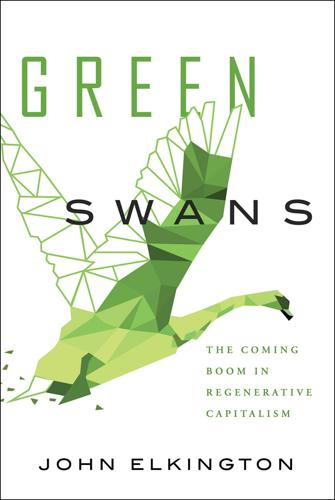
Green Swans: The Coming Boom in Regenerative Capitalism
by
John Elkington
Published 6 Apr 2020
In a parallel initiative, the latest round of the Green Transition Scoreboard, operated by Hazel Henderson’s Ethical Markets,54 has concluded that there had been a cumulative investment of $10.39 trillion in things like clean energy, green construction, and plant-protein food between 2009 and 2019.55 One telling indicator of the shift was the public listing of Beyond Meat, whose shares skyrocketed 135% shortly after the listing, even though the meat alternatives company warned that it may never make a profit.56 In one of my favorite new sectors, producers of plant-based meat, chicken, egg, and fish substitutes are working toward true Green Swans—and maybe, with alternative fish products, what we might call “Blue Swans.” In addition to Beyond Meat, other firms to watch include BlueNalu (which grows fish products using fish cells fermented in bioreactors), Good Catch (working on plant-based tuna alternatives, a hugely overfished species), Impossible Foods (known for its plant-based hamburgers, but also now exploring fish alternatives), Just, Inc.
…
See also change process stages; Future-Fit change approach Paradise, California, 137 Patriotic Millionaires, 132 Peak of Inflated Expectations stage, Gartner Hype Cycle, 174 Pearl, Morris, 132 penicillin, 103–104 People, Planet & Profit (3Ps), 30, 54 Perez, Carlota, 203, 235 PG&E power utility, 137 pharmaceutical industry, 231–232 Phelan, Ryan, 231–232 philanthropy, misuse of, 13 Piketty, Thomas, 60 Pinker, Steven, 28 placebo buttons, 43–46, 54 Plan B work, 234 Planet Labs, 114, 115 plant-based meat, 233 Plastic: A Toxic Love Story (Freinkel), 92–93 A Plastic Ocean (film), 92 plastics, as wicked problem, 92–97 Plateau of Productivity stage, Gartner Hype Cycle, 175 Pliny the Elder, 39 politics. See also democracy activism in, 227–228 breakers in, 221 different thinking, need for, 23–27 in future, 224 future-fit, 163–164 with Green Swan characteristics, 208–213 and need for systemic change, 14–15 underperformance in, 128 Polman, Paul, 19, 131 Polos, Stephen, 215 polymers industry, 92–97 Pope Francis, 128 population decline, 210–211, 222–223 Porter, Michael, 59, 150, 150f Positive Pursuits element, Future-Fit approach, 163 The Power of Unreasonable People (Elkington and Hartigan), 11 precision medicine, 179 predatory delay, 67 “Pre-Science” stage, in paradigm shift, 121–122, 123 product liability, 66 professional media, 227 profit(s), 27, 30–33, 47, 53–55, 128–129 Project Breakthrough, 34–36 Project Drawdown, 141, 232 Prosperity (Mayer), 49–50 Prosperity without Growth (Jackson), 56 psychoanalyzing business terms.
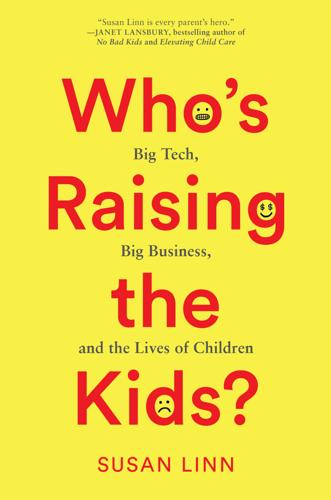
Who’s Raising the Kids?: Big Tech, Big Business, and the Lives of Children
by
Susan Linn
Published 12 Sep 2022
Instead, like the science materials produced by energy companies, the financial literacy materials produced by Visa and Discover communicate a philosophy about money management imbued with values that promote individual consumption. That brings me to a different kind of consumption. I was interested to discover that Impossible Foods, a purveyor of plant-based meat substitutes, is carving out a presence in schools. It began with a pilot program in several states where Impossible Burgers, each sporting a little flag with the company’s trademark, were sold in school cafeterias. I was particularly interested in the following quote from Pat Brown, the company’s CEO.
…
I was particularly interested in the following quote from Pat Brown, the company’s CEO. Schools not only play a role in shaping children’s dietary patterns, they play an important role in providing early education about climate change and its root causes. We are thrilled to be partnering with K-12 school districts across the country to lower barriers to access our plant-based meat for this change-making generation.52 I definitely believe that schools should teach about the root causes of global warming, and I understand that massive herds of factory-farmed cattle are an environmental hazard. But, upon reading this quote, I was puzzled about how merely serving Impossible Burgers in schools would educate kids about climate change.
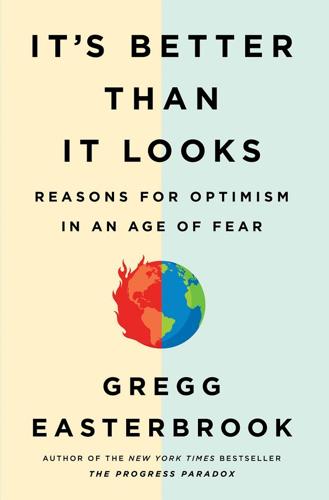
It's Better Than It Looks: Reasons for Optimism in an Age of Fear
by
Gregg Easterbrook
Published 20 Feb 2018
This won’t happen anytime soon. Perhaps a middle ground could be found between plants-only fare and the Western—and increasingly Asian—cuisine of beef, pork, and fowl. A possible practical compromise is meat produced absent an animal. Today’s veggie burgers taste like compressed sawdust. In the research lab are plant-based meat substitutes that are scrumptious, triggering the satisfaction sensors in the tongue. Several start-up companies are working on plant-based recipes that activate our biological pathways for the taste of meat, leading to a veggie burger that is healthful, satisfying to chow down on, and doesn’t require any cattle, nor the considerable agricultural inputs involved in raising cattle.
…
See Fear of Missing Out food production, 141, 162 accelerated cross breeding in, 6–7 in Africa, 9–11 Borlaug and, 3, 6–8, 9 CIMMYT and, 6 climate change and, 21 dietary habits of West and, 25, 116 Dust Bowl and, 5 famine and, 4–5 fertilizer and, 7 greenhouse gas and, 238 Hamilton solution and, 12 India and, 8, 16 infrastructure and, 12 machines and, 274, 275 malnutrition and, 3–4, 7, 12 market economy and, 11 meat and dairy yields in, 8 obesity and, 5 plant-based meat substitutes and, 16–17 subsistence farming and, 9, 11, 18–19 technological agriculture as, 11, 14 topsoil and, 10–11 traditional crop breeding and, 6 US jobs and, 71–72, 75 USAID and, 4, 10 water and, 13–14 See also Green Revolution; high-yield agriculture; land, in food production; meat fossil fuels cars and, 147–148 climate change and, 227 deregulation and, 56 greenhouse gases and, 56 leaded gasoline, 112 Limits to Growth on, 52–53 National Energy Act and, 54 natural gas as, 45–46, 53–54 “peak oil” and, 53, 57 price controls for, 54–55 reformulation of, 59–60 resource depletion and, 52–53, 54, 55–57 US coal mining and, 61 freedom of association, 222–223 Fresco, Louise, 16 Friedman, Milton corporate taxes and, 256 free-market systems and, 255–256 on Universal Basic Income, 255–257, 259–260, 264 Gale, William, 255 gay marriage, 89, 224, 268 GDP.
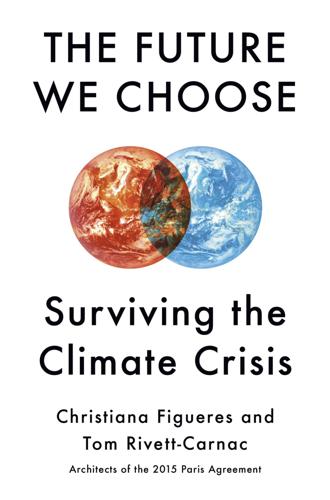
The Future We Choose: Surviving the Climate Crisis
by
Christiana Figueres
and
Tom Rivett-Carnac
Published 25 Feb 2020
Even if you feel that you cannot completely forgo meat and dairy, adopting a flexible diet in which you enjoy other foods for certain meals or certain days of the week can have a huge impact. In reality, this is likely to be where the biggest dietary changes will come in the next years. In many countries the number of people planning to become vegan or vegetarian is relatively low, but fully 50 percent of the U.S. population would like to eat less meat. Plant-based meat replacements are already becoming cheaper, more efficient, and more delicious. By 2040, these products are expected to make up 60 percent of the market, up from 10 percent today.61 The market is beginning to recognize the future of plant-based food. You have the chance to join a food revolution by adopting and normalizing a more plant-based diet
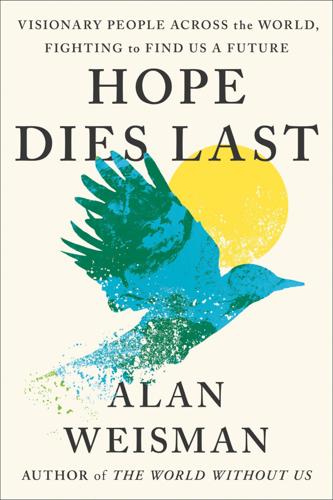
Hope Dies Last: Visionary People Across the World, Fighting to Find Us a Future
by
Alan Weisman
Published 21 Apr 2025
Pulling a fillet knife from his belt, Bren cuts a piece, nibbles it raw, then blanches the excess brine and iodine by dipping the rest in a thermos of hot water, turning it bright green. He tastes again. “Mouthfeel like noodles. Rich umami.” Come April, it will be harvested, unfurled, trimmed, sorted, blanched, dried, and sent to be turned into plant-based meat substitutes, bioplastics, and soil bio-stimulants. During COVID, when they couldn’t risk doing any of that in their processing plant, it had occurred to Bren’s marketer, Samantha Garwin, that Connecticut, once the world’s top producer of fine cigar wrappers, had at least a hundred mostly idle tobacco barns.
…
News from Berkeley Lab, December 4, 2012. https://newscenter.lbl.gov/2012/12/04/nitrous-oxide-levels-in-california. Coren, Michael J. “The Plant Protein That Could Push Meat Off Your Plate.” Washington Post, June 27, 2023. https://www.washingtonpost.com/climate-environment/2023/06/27/new-plant-based-meat-developing-rubisco-duckweed. DeConto, Robert M., David Pollard, Richard B. Alley, Isabella Velicogna, et al. “The Paris Climate Agreement and Future Sea-Level Rise from Antarctica.” Nature 593 (May 6, 2021): 83–99. https://doi.org/10.1038/s41586-021-03427-0. Dessandier, P.-A., J. Knies, A.
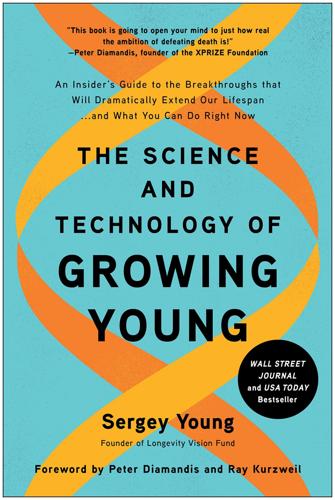
The Science and Technology of Growing Young: An Insider's Guide to the Breakthroughs That Will Dramatically Extend Our Lifespan . . . And What You Can Do Right Now
by
Sergey Young
Published 23 Aug 2021
A 2005 best-selling book called The China Study established strong links between animal protein consumption and cardiovascular disease, diabetes, and cancer—conclusions that agree with eight hundred more studies. I recommend that you limit consumption of dairy and meat (especially red meat), and avoid processed meats altogether. If you do eat animal products, I recommend grass-fed, free-range, organic products of the best quality. Recent advancements in the quality, availability, and cost of new plant-based “meat” products from companies like Beyond Meat and Impossible Foods are also really exciting. DRINK MORE WATER: To live longer, “fall in love” with water. Not only do most of us drink far too little water for our optimal health, but upping your water intake will encourage you to eat less overall.
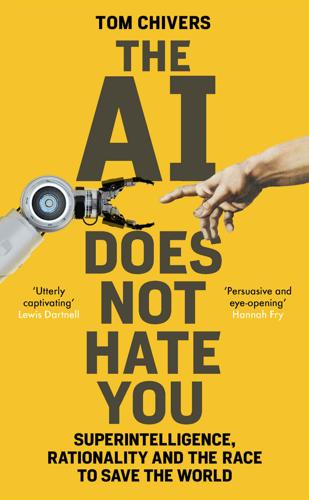
The Rationalist's Guide to the Galaxy: Superintelligent AI and the Geeks Who Are Trying to Save Humanity's Future
by
Tom Chivers
Published 12 Jun 2019
It also works on animal-welfare issues; when I was in San Francisco talking to Karnofsky and his team, their head of comms, Mike Levine, took me out to lunch at a local burger bar, so he could gently probe me to make sure I wasn’t going to write an entire book mocking the nerds who think Skynet is going to take over the world (he is endearingly protective of his nerds). We ate the Impossible Burger, a plant-based meat burger, which was produced partly with funding from OpenPhil,12 the idea being to reduce the requirement for beef and thus improve animal welfare and reduce greenhouse-gas emissions. I can report that it tastes very much like a burger, indeed a perfectly nice burger, and appears to be taking off; it is sold at hundreds of locations in the US and one of its rivals has, since I went over there, arrived in Britain.
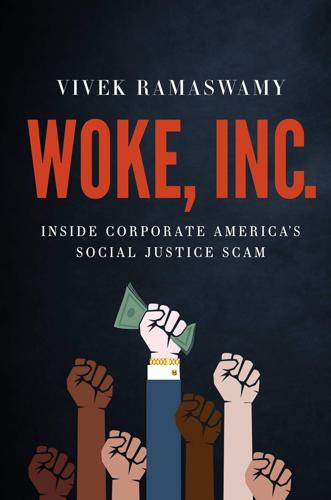
Woke, Inc: Inside Corporate America's Social Justice Scam
by
Vivek Ramaswamy
Published 16 Aug 2021
Similarly, Beyond Meat is a public company that specializes in plant-based protein products. Instead of using animal cells, Beyond Meat “sources proteins, fats, minerals, flavors and colors, and carbohydrates from plant-based sources like peas, beans, potatoes and brown rice” to produce its meat alternatives. Beyond Meat believes that “by shifting from animal to plant-based meat, [they] can positively impact four growing global issues: human health, climate change, constraints on natural resources, and animal welfare.”17 According to a comparative assessment, its “Beyond Burger” “generates 90% less greenhouse gas emissions, requires 46% less energy, has >99% less impact on water scarcity and 93% less impact on land use than a ¼ pound of U.S. beef.”18 Personally, I’m not sure Beyond Meat and other brands like Impossible Foods will meet all their lofty goals.iii Their stated connection to climate change in particular seems a bit tenuous to me, but the connection to animal welfare and environmental respect is straightforward.
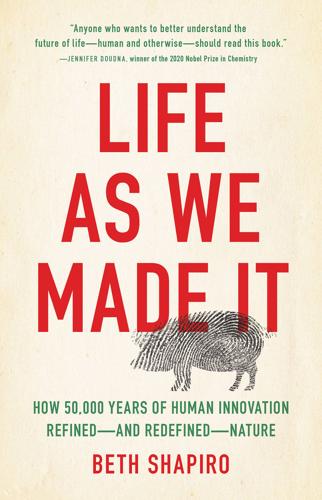
Life as We Made It: How 50,000 Years of Human Innovation Refined--And Redefined--Nature
by
Beth Shapiro
Published 15 Dec 2021
Animal foods provide nutrition and satisfaction that plant-based foods are missing, and animal foods are tightly woven into many cultures. To remove animals from our diets entirely, Brown would have to invent a plant-based product that mimicked exactly the animal products that people want to eat. He turned to his biochemical and technology development savvy and founded two companies: Impossible Foods, which focuses on plant-based meat replacements, and Lyrical Foods, which develops plant-based dairy products like cream cheeses, yogurts, and filled pastas and sells them under the brand Kite Hill. Impossible meat’s success was impossible to fathom when the product was first introduced. In 2009, most people assumed that Brown would find some success in a niche market.
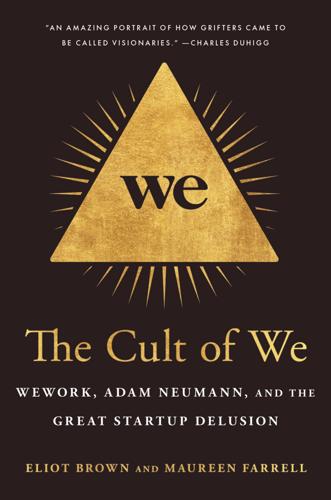
The Cult of We: WeWork, Adam Neumann, and the Great Startup Delusion
by
Eliot Brown
and
Maureen Farrell
Published 19 Jul 2021
In the electronics boom of the late 1950s and the 1960s, countless old-line companies added “tronics” to their name to get more attention. In the dot-com bubble, the famed editor Tina Brown said her much-hyped new magazine Talk proclaimed itself a “cultural search engine.” In this boom, the imitation-meat company Beyond Meat wasn’t a veggie burger maker but a “platform” like Facebook or YouTube—that made plant-based meat. The fast casual grilled cheese chain The Melt thought gizmos like an online ordering system entitled it to tech-like valuations, rather than grilled cheese valuations. The discount razor maker Harry’s boasted about its “subscription” revenue from repeat razor buyers, a term common in software companies, and raised hundreds of millions of dollars in venture capital.
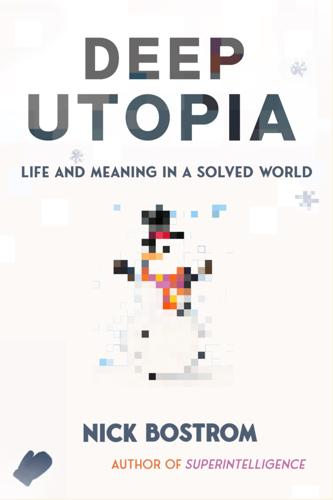
Deep Utopia: Life and Meaning in a Solved World
by
Nick Bostrom
Published 26 Mar 2024
We could make their meanings share even more features if we postulate that the activity to be engaged in is also the same for all of them. In the real world, the animal welfare promoters would presumably fan out to attack the problem from different directions—some to pursue public advocacy, others to research plant-based meat substitutes, others to fundraise, others to lobby legislators. However, we could imagine a situation in which they would all need to engage in the same type of activity to accomplish their shared goal. For example, suppose that we stipulate that the end of factory farming could be brought about only through divine intervention, and that the probability of such intervention is proportional to the number of the original activists who are praying for it to happen.
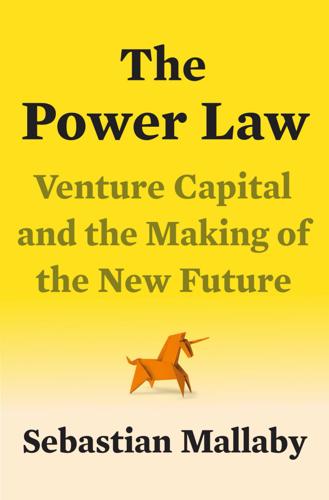
The Power Law: Venture Capital and the Making of the New Future
by
Sebastian Mallaby
Published 1 Feb 2022
A dozen years after investing in the 2006 fund, one limited partner complained that he had lost almost half his capital.[39] Kleiner’s second cleantech wave, starting with the green growth fund raised in 2008, did better. The partnership homed in on businesses that did have a moat, and produced a few dramatic hits: as of 2021, the plant-based meat company Beyond Meat had generated 107x, the battery maker QuantumScape had made 65x, and the “smart solar” company Enphase had produced 25x. This was enough to generate at least one venture fund that ranked in the industry’s top quartile.[40] But Kleiner’s overall performance remained dull.[41] Back in its heyday, in 2001, Vinod Khosla and John Doerr had ranked first and third, respectively, on the Forbes Midas List.